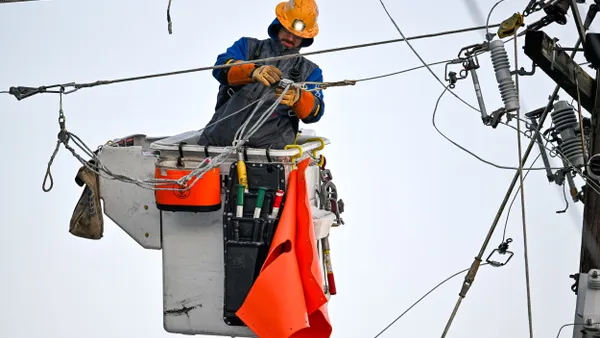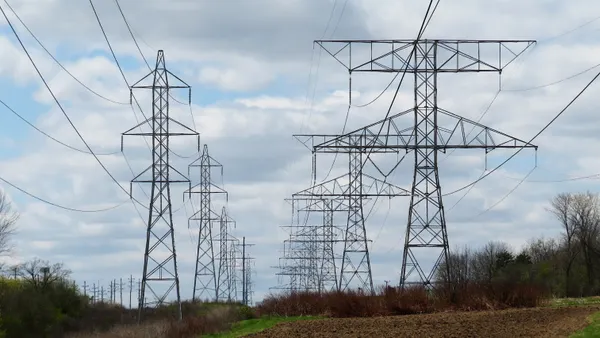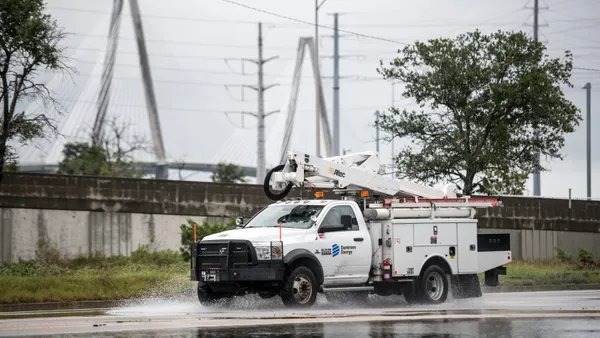Dive Brief:
- The California Senate Energy, Utilities and Communications Committee will consider on Friday AB 1054, aimed at helping utilities pay wildfire damage liabilities, so long as they are not found responsible for sparking the blaze.
- The legislation represents Democratic Gov. Gavin Newsom's plan to establish a liquidity fund utilities could access — he has asked the legislature to pass the bill by the end of the July 12 session.
- The measure has support from renewable energy groups, but some consumer advocates say it eliminates important protections and aids utilities regardless of negligence.
Dive Insight:
The California legislature will attempt to pass AB 1054 in a week, but opposition is bubbling up that could complicate the governor's preferred schedule.
Attorneys representing wildfire victims say the legislation should be tabled or rewritten to include more consumer protections. Other advocates are calling the proposal a "bailout."
But several trade associations representing California's wind, solar, geothermal, and bioenergy industries say the legislation is necessary to "stabilize and hold accountable the state's largest utilities." The groups say they represent more than 28 GW of utility-scale and distributed renewable energy, serving more than a third of the states electricity portfolio.
"California's energy future is dependent upon getting to a financially stable market, as AB 1054 intends," Independent Energy Producers CEO Jan Smutny-Jones said in a statement.
The groups applaud AB 1054, saying it will create a fund that provides financial stability to utilities who adhere to new safety standards.
Some energy producers have a vested interest in how utilities fare with wildfire liability claims. Pacific Gas & Electric's bankruptcy this year led a judge to determine that the utility could potentially discharge above-market power purchase agreements in its Chapter 11 proceeding.
"This is a pivotal moment for California. We must urgently address fire prevention and reparation, ensure we have stable utilities and rates, and mitigate the climate crisis that's predicted to spur more fires," Large-scale Solar Association Executive Director Shannon Eddy said in a statement. "None of this is easy."
But some consumer advocates say the legislation means customers will wind up paying for wildfires they played no role in starting.
AB 1054 should be "materially amended or tabled," say Aguirre & Severson attorneys, which are representing utility customers in a pending wildfire case.
"The bill would relieve [investor-owned utilities] from having to prove they acted reasonably before passing their wildfire costs onto ratepayers," the firm said in a letter Tuesday to the Senate committee considering the legislation.
The measure's "reversed burden of proof standard would have the practical effect of making it nearly impossible for ratepayers to prevent the IOUs passing onto them unjust and unreasonable wildfire costs," the attorneys said.
California's interpretation of inverse condemnation holds utilities accountable for wildfires caused by their equipment, even if a company is not found negligent. The wildfire fund is one way the industry has considered addressing that risk for utilities.
The bill was called a "bailout" that would continue an annual $30 charge on customers, in an opinion piece published in the Sonoma Index-Tribune.
"Newsom cleverly devised his plan so customers rescuing the undeserving utilities would barely notice their new payments," wrote contributor Thomas Elias.
The fund would be seeded through a $2.50 monthly charge on customer bills, in place since the states energy crisis, that had been slated to roll off.
"Bills wouldn't change until after the next huge fire piles on even more claims," Elias wrote. "Business as usual would continue at companies that spent many years mismanaging safety operations."
One proposal would eliminate administrative law judges' independent proposed decision in rate setting proceedings, at the California Public Utilities Commission. The PUC said it does not have a position on the proposed legislation.














